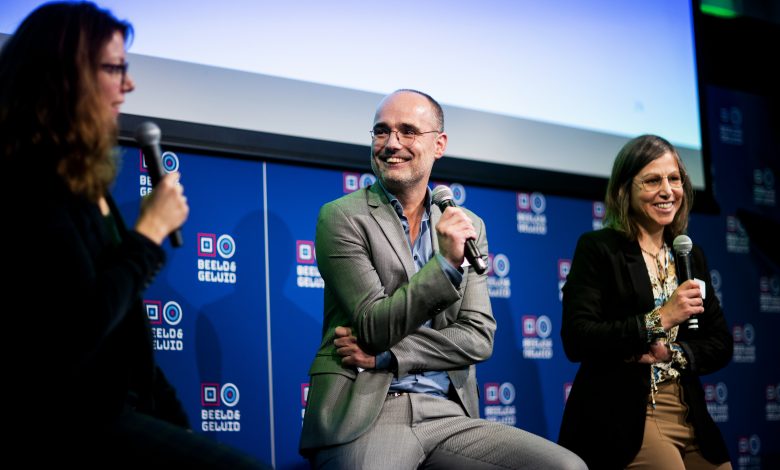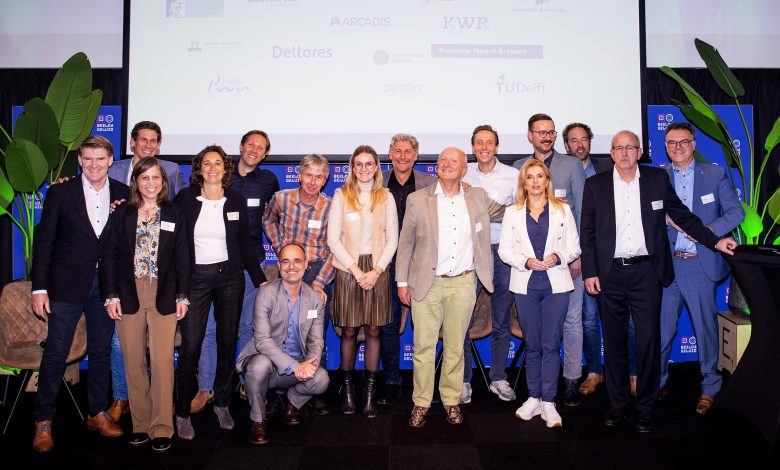On 24 October, seventeen parties – from Zeeland to Groningen – signed a declaration of intent through which COASTAR will embark on a new phase. The knowledge programme, which makes an important contribution to a robust freshwater provision in low-lying areas of the Netherlands, is to develop into a network, within which the parties collaborate in learning, implementing and upscaling.
The shared ambition of water authorities, municipalities, drinking water utilities, greenhouse horticulture, business and knowledge institutes is clear. By signing the declaration of intent, these parties commit themselves to the further development and implementation of COASTAR, the robust provision of freshwater through the smart use of the subsurface.
Subsurface for provision of freshwater
The subsurface can make an important contribution to a robust freshwater provision in low-lying areas of the Netherlands. Under the motto ‘saline at bay, fresh on hand’, partners from South-Holland to Groningen have further elaborated and tested concepts and techniques over the last few years. Examples include the extraction and use of brackish groundwater and the subsurface storage of surplus freshwater. This effort built upon the decades of experience in managed aquifer recharge in the Dutch water supply dunes and recent, small to medium-sized aquifer storage applications in agriculture and horticulture, as well as in the city.

Klaasjan Raat (KWR) and Ida de Groot-Wallast (Deltares) discuss the shared ambition of the COASTAR network: ‘2040, a Netherlands that is resilient to freshwater shortages through the full exploitation of subsurface opportunities.’
Research and field trials
COASTAR is dedicated to a structural and strategic application of these concepts by means of research and field trials. Klaasjan Raat, researcher and programme manager at KWR Water Research Institute, was involved with COASTAR from its very beginning in 2016. He looks back with pride on what has been accomplished since then: ‘COASTAR solutions have now been implemented at numerous sites all along the Dutch coast, in both pilots and full-scale. They are contributing to a robust water provision for drinking water, horticulture and industry, and to water reuse in the city.’
2040: Netherlands resilient to freshwater shortages
The COASTAR examples offer prospects for solving (fresh)water demand issues. In a panel discussion, directors and managers stressed that upscaling was the next logical step. To accelerate this process, more than 20 parties will be collaborating over the next three years in the COASTAR network. The network brings together business, public authorities and knowledge institutions from Zeeland to Groningen. Ida de Groot-Wallast from the Deltares knowledge institute: ‘We are working jointly on organising knowledge sharing between the different pilots, regions and organisations. We contribute to the agenda-setting and anchoring of knowledge and experience. We also provide guidance on follow-up initiatives and contribute to international collaboration. In this way we work towards realising our shared ambition: 2040, a Netherlands that is resilient to freshwater shortages through the full exploitation of subsurface opportunities.’

Start of the COASTAR network, following the signing of the declaration of intent on 24 October 2022. Parties from Zeeland to Groningen work on a shared ambition: 2040, a Netherlands that is resilient to freshwater shortages through the full exploitation of subsurface opportunities.
COASTAR in practice
During the COASTAR symposium on 24 October, which was opened by the Delta Programme Commissioner Peter Glas, several practical examples were reviewed.
- Gertjan Zwolsman (Dunea) spoke about FRESHMAN, the brackish water pilot at the Meijendel location in the water supply dunes at Scheveningen. At this site, the Dunea drinking water utility is investigating whether brackish groundwater can be used for the production of drinking water. By extracting this brackish groundwater from a strategic depth – just below the freshwater lens – extra space can also potentially be created for the storage of freshwater under the dunes. This is important for Dunea, because the current drinking water source, water from the Meuse and Lek rivers, is under pressure. And this, at a time that the population in the region of The Hague is growing rapidly and, with it, the demand for drinking water.
- The North-Holland drinking water utility, PWN, is also looking for extra water for a growing population. In Hoorn the water utility is conducting a pilot on the aquifer storage of drinking water. This extra reserve can be used in the summer to meet peaks in drinking water demand. PWN is also exploring the use of brackish groundwater as a source for drinking water. Extraction in the Haarlemmermeer has the additional benefit that the brackish seepage into this deep polder is captured to a certain extent. Whether this sort of concept can also be applied elsewhere in North-Holland is one of the questions that PWN is pursuing further. ‘The geohydrological suitability maps developed in the COASTAR knowledge programme are very handy in this context’, says Koen Zuurbier, strategic adviser at PWN.
- The Westland region has a thriving and innovative greenhouse horticulture sector. This activity requires large amounts of water to grow products like flowers, vegetables and fruit. The area is also highly vulnerable to pluvial flooding since the precipitation storage capacity is very limited due to the extensive paved surface area. Thirteen horticulturalists in the Broek polder have gotten together to form a water cooperative, which should provide for a sustainable irrigation water provision and, in collaboration with the Van Delfland Water Authority, for an increase in the collection of precipitation water. Tomato cultivator Cock van Schie, chairperson of the cooperative, spoke during the symposium about the water bank concept that the horticulturalists will be testing in practice. The precipitation water reservoirs are inter-connected, the Van Delfland emergency reserve is connected, and the subsurface is used for extra storage of precipitation water. The combined approach should ensure that practically all the precipitation water is retained in the area, and that the supplementary use of groundwater is minimised.
The following parties are involved in the COASTAR network: Acacia Water, Arcadis Nederland, Brabant Water, Deltares, Dunea, Evides Waterbedrijf, Municipality of Rotterdam, Municipality of Schouwen-Duiveland, Municipality of Westland, Glastuinbouw Nederland, Van Delfland Water Authority, KWR, Oasen, Province of North-Brabant, Province of South-Holland, PWN, TU Delft, Utrecht University, Waterbedrijf Groningen and Wageningen University & Research.